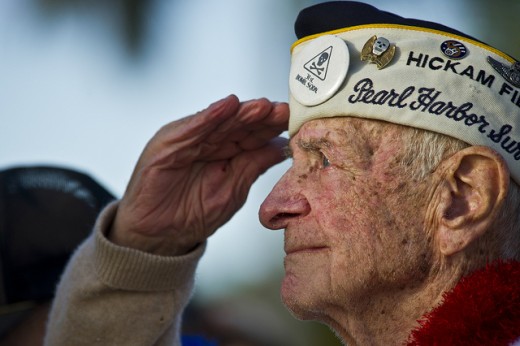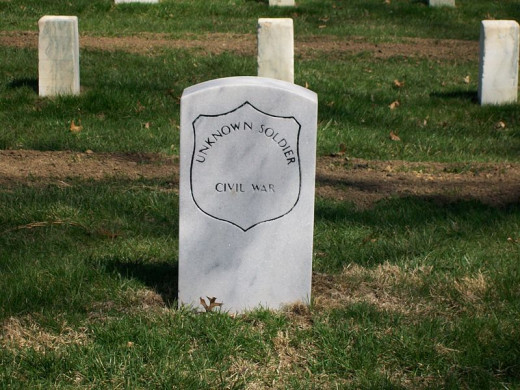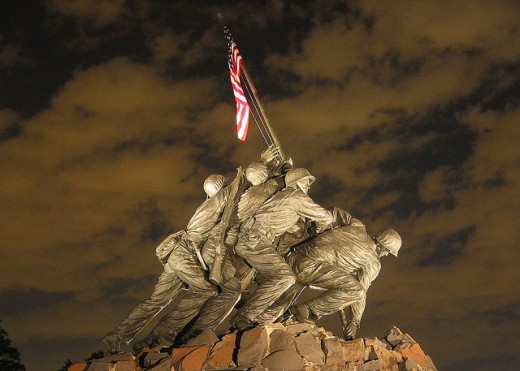The Difference Between Memorial Day and Veterans Day

The United States has two holidays dedicated to honoring men and women who have served in our armed forces: Memorial Day and Veterans Day. Many people are unsure of the differences between the two, and may even wonder why they are separate holidays.
Here's a look at these two special days — their origins, the differences between them, and the reasons why having two holidays for our veterans is appropriate.


Memorial Day
The oldest of the two holidays is Memorial Day, which originated shortly after the end of the US Civil War. In 1868, May 30 was officially proclaimed to be a day for honoring Union soldiers who died in the Civil War, and for providing aid to their widows and orphans. Southern states, understandably, did not observe the holiday, originally known as Decoration Day, until after WWI, when it was expanded to include members of all branches of the armed forces who died in service to their country.
In 1971, the holiday was moved from May 30th to the last Monday in May, ensuring an annual 3-day weekend. This may help explain why the holiday appears to have lost much of its significance. To many, Memorial Day is merely part of the 3-day weekend that kicks off summer, while others see it as simply a patriotic holiday, similar to the 4th of July. Some people consider it a day for remembering anyone who has died, not realizing it was intended specifically to honor veterans who died in service to the country.
National Moment of Remembrance
In 2000, Congress passed the National Moment of Remembrance Act. Although few have heard of it, the act encourages Americans to pause at 3:00 pm local time on Memorial Day for a moment of silence in remembrance of those who have given their lives in service to the nation.



United States Armed Forces
Branch
| Primary Responsibility
|
|---|---|
US Army
| land-based operations
|
US Navy
| naval operations
|
US Air Force
| aerial operations
|
US Marine Corps
| expeditionary and quick-strike amphibious operations
|
US Coast Guard
| maritime (ports and coastal areas) operations
|
Veterans Day
Veterans Day traces its origins back to the end of WWI. On November 11, 1918, the armistice ending the fighting in WWI was signed. The following year, November 11 was proclaimed by King George V of Great Britain to be Remembrance Day, a day for member nations of the British Commonwealth to honor those who died in what many believed had been "the war to end all wars". Today, many countries around the world still observe Remembrance Day (known as Armistice Day in some countries) on November 11.
America began observing Armistice Day in 1919. In 1954 the day was officially renamed Veterans Day, and became a day for honoring all national veterans, living or dead. In 1971, the holiday was moved to the last Monday in October to create a 3-day weekend every year. Because of the historical significance of November 11, however, and the fact that US observances no longer coincided with worldwide observances of Remembrance Day, there was pressure to move the holiday back to the original November 11 date, which was done in 1978.

Why 2 Holidays for Veterans?
Given the importance of November 11 around the world, it is appropriate for the US to honor its own veterans on that date. Should there be a separate day specifically for honoring those who have died in service to the country, however? Aren't those fallen heroes included when we honor all veterans on Veterans Day?
Do you think there should be two holidays for veterans, or should they be combined into a single day?
Memorial Day is (or should be) a somber occasion on which we remember and honor those who made the ultimate sacrifice for our country, and rededicate ourselves to making sure that their sacrifices were not in vain.
Veterans Day, on the other hand, gives us a chance to honor and express our gratitude to those veterans who are still alive to appreciate it, and to be glad that we can be with them. Each day is important for a different reason, and combining the two would diminish the meaning of each.
Do you agree? Take the poll on the right, or express your thoughts in a comment below.








